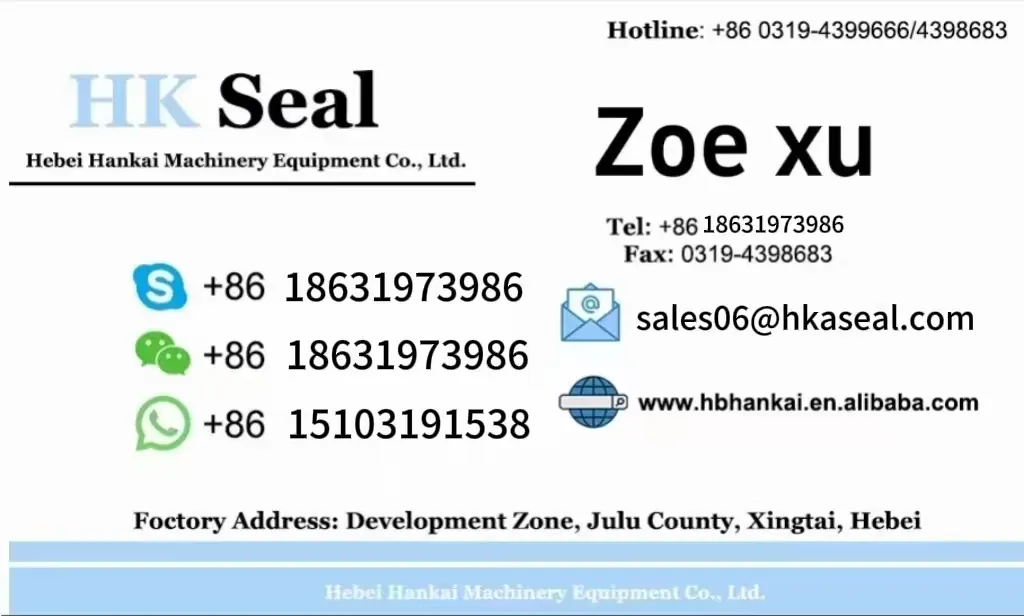9 月 . 21, 2024 16:58 Back to list
hydraulic ram oil seals
Understanding Hydraulic Ram Oil Seals Importance, Functionality, and Maintenance
Hydraulic ram oil seals play a crucial role in maintaining the integrity and functionality of hydraulic systems. These seals are engineered to prevent the leakage of hydraulic fluid while also keeping contaminants out, thus ensuring efficient operation of hydraulic rams. The design and material composition of these seals are essential for their durability and performance under varying conditions.
Hydraulic rams are widely used across various industries, from construction and automotive to manufacturing and marine applications. They rely on hydraulic fluid to generate the power required to perform heavy-duty tasks, such as lifting or pushing loads. In such systems, the oil seals act as barriers that contain the hydraulic fluid within the system, preventing it from leaking and ensuring optimal pressure levels are maintained.
The primary function of hydraulic ram oil seals is to prevent fluid leakage. Leakage not only leads to a loss of hydraulic fluid but also reduces the system's efficiency and performance. If the hydraulic fluid is lost, the ram may not be able to generate the required force, resulting in poor activity and potential system failure. Moreover, the presence of contaminants such as dirt, dust, and moisture can compromise the hydraulic fluid's quality, leading to corrosion and wear of the internal components. Thus, effective oil sealing is paramount for the longevity of hydraulic rams.
hydraulic ram oil seals

Key materials used in manufacturing hydraulic ram oil seals include rubber compounds, polyurethane, and PTFE (Polytetrafluoroethylene)
. Each material has its own advantages, and the choice largely depends on the application's specific requirements, including temperature fluctuations, chemical exposure, and pressure levels. For instance, nitrile rubber is common for general applications due to its resilience and compatibility with various hydraulic fluids, whereas PTFE is preferred in high-temperature scenarios due to its excellent thermal stability and low friction properties.Regular maintenance and inspection of hydraulic ram oil seals are vital to ensure their continued effectiveness. Signs of wear or damage, such as leaks or visible cracks, should be addressed immediately to prevent system failure. Routine checks can involve inspecting the seals for degradation, testing for fluid leaks, and replacing seals as necessary. Implementing a preventive maintenance program can significantly reduce costly downtimes and enhance system reliability.
To conclude, hydraulic ram oil seals are integral components that ensure the efficiency and reliability of hydraulic systems. Understanding their functionality, material composition, and maintenance requirements can lead to better operational performance and reduced downtime. By prioritizing the integrity of these seals, businesses can enhance their hydraulic systems' overall performance and longevity, ultimately contributing to efficiency and productivity in their operations.
-
The Power of Advanced Sealing: High-Pressure Solutions for Modern Machinery
NewsOct.29,2024
-
Optimizing Machinery with High-Performance Oil Seals
NewsOct.29,2024
-
Maximizing Machinery Efficiency with Advanced Oil Seals
NewsOct.29,2024
-
Ensuring Equipment Longevity with Quality Oil Seals
NewsOct.29,2024
-
Enhance Equipment Performance with Quality Oil Seals
NewsOct.29,2024
-
Custom Oil Seals for Specialized Machinery Needs
NewsOct.29,2024
-
The Role of Wiper Seals in Dust Sealing and Oil Protection
NewsOct.20,2024
Products categories
















